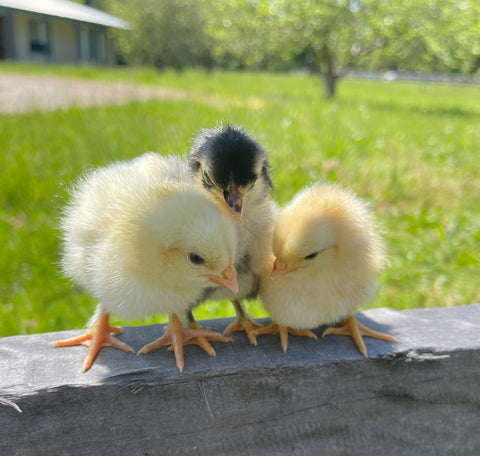For keepers of backyard chickens, their children or grandchildren, the daily collection of fresh eggs is a delightful ritual. But sometimes, Mother Nature throws us a curveball and our hens produce eggs that are...well, a little odd.
Don't worry, this is a normal part of backyard chicken life and understanding the reasons behind these oddities can help us keep our feathered friends healthy and happy.
A Crash Course in Chicken Physiology
Before we delve into the realm of odd eggs, let's take a quick peek at the remarkable process of egg formation. It all starts with daylight and diet which trigger a complex hormonal cascade within the hen.
Over 24-26 hours, an egg yolk is formed then surrounded by albumen (the egg white), membranes and finally, the eggshell. This eggshell is made primarily of calcium carbonate and its strength is crucial for protecting the developing chick and ensuring safe passage during laying.
Common Culprits Behind Odd Eggs
While the occasional misshapen egg is no cause for alarm, persistent egg oddities can indicate an underlying issue. Here are some common culprits:
- Stress: Predators, loud noises, overcrowding and even extreme weather can trigger stress, leading to soft shells, misshapen eggs or even temporary laying pauses.
- Age: Young hens and senior hens are more prone to laying soft-shelled eggs or eggs with thin shells.
- Nutrition: A lack of calcium, phosphorus or vitamin D can lead to soft shells or thin shells. Excess protein can also contribute to thin shells.
- Internal parasites: Roundworms can steal nutrients needed for egg production resulting in soft shells or misshapen eggs.
- Viruses: Certain viruses, like Egg Drop Syndrome (EDS), and Infectious Bronchitis (IB), can cause a variety of egg abnormalities including soft shells, misshapen eggs and even internal hemorrhages.
Identifying Examples of Odd Eggs and their Causes
Soft or no eggshell
This is often a sign of calcium deficiency but it can also be caused by phosphorus or vitamin D deficiency, roundworm infections, low-grade chicken feed, mycotoxins from mouldy feed or viruses like IB. If you see this, contact Talking Hens to trouble-shoot likely causes.

Thin eggshell (hairline cracks or holes)
This can be caused by high water salinity, any of the reasons listed above for soft shells, or simply being an older hen. We’ve found that providing a separate dish of medium to coarse

Bumpy (blotches and clumped tiny balls that rub off)
This can be caused by excess calcium, inadequate nutrition, old age, a compromised immune system or heat stress. If you see this, re-evaluate your hens' diet and housing conditions. Again, if you see this, contact Talking Hens to trouble-shoot likely causes.

Wrinkled (resembling undulating waves)
This can be caused by excess calcium, roundworm infections, stress from aggressive pecking, heat stress, or soiled eggs. If you see this, address the underlying cause such as deworming, providing more space or reducing stress factors.

The good news is that most odd egg issues can be resolved with some simple adjustments:
- Reduce stress: Provide ample space, hiding places and protection from predators and bad weather.
- Optimise nutrition: Ensure your hens have access to a high-quality layer feed formulated for their specific needs such as our Sustainable Layer. Supplement with
shell grit if feeding your hens a lower-grade diet or pellets. - Improve gut health: Consider adding probiotics or extra vitamins to your hens' feed, such as
Vitality Booster , to promote nutrient absorption. - Parasite control: Regularly
deworm your hens to prevent internal parasites from stealing essential nutrients. We normally recommend thatdeworming should be done every 6-months or so. - Address underlying health issues: If after speaking with a staff member at Talking Hens and discovering that you may have a more serious health issue, consult a veterinarian who is familiar with chickens for diagnosis and treatment.
Remember, a single odd egg is usually nothing to worry about. However, persistent oddities warrant closer examination. By understanding the causes of these oddities and taking corrective action, you have every chance of maintaining high-quality eggs over the long-term.







Comments (1)
Thank you for your article on soft shelled and strange looking eggs – most timely. I did discus this problem when I bought my last bag of feed as well as some Vitality Booster. We had a run of normal eggs but now we get 1 really big egg every 2nd day and the egg shell is thin and quite strange at the pointy end.
My hens (only 2 of them)don’t like the shell grit so I have been adding it to their feed??
I think I will try some of the Worms Away but am open to any other suggestions. I have been putting small amounts of garlic in their feed plate as well as a tablespoon of ACV in their water which is apparently supposed to stop worms?
Thank you for your assistance.
Warm regards,
Jennifer